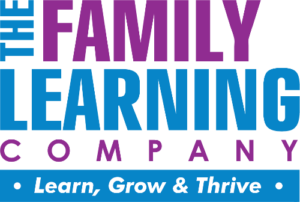Understanding Intergenerational Family Learning and Its Benefits
December 26, 2023

What is Family Learning?
Family learning encourages intergenerational learning, providing an array of opportunities for the entire unit, including children, parents, and grandparents. It engages families as a collective to learn together in order to raise skills across generations. These programmes take place in conjunction with schools or other communities such as non-profit organizations.
Intergenerational family learning is a dynamic educational approach that bridges generational gaps and fosters collaborative learning experiences among family members. It revolves around leveraging the diverse experiences, knowledge, and skills of different generations to promote learning and enhance literacy within the family unit.
Combating Illiteracy and Enhancing Literacy:
Intergenerational family learning initiatives serve as a powerful tool in addressing illiteracy and promoting literacy across generations. By integrating activities that focus on phonemic awareness, phonics, and reading comprehension, these programs provide opportunities for children, parents, and grandparents to engage in shared reading activities, interactive family literacy games, and the utilization of family learning software. This collaborative learning approach helps adults improve their literacy skills while simultaneously nurturing the development of young learners.
Cultural and Linguistic Enrichment:
Intergenerational family learning celebrates diversity by incorporating cultural and linguistic richness into learning experiences. Families from diverse backgrounds often have unique linguistic heritages. By encouraging the exchange of languages and cultural traditions, these programs create an inclusive space that values multilingualism and cultural diversity. This exposure not only strengthens family bonds but also enhances children's understanding and appreciation of different cultures, fostering a sense of global awareness and empathy.
Promoting Multi-generational Learning Experiences:
These initiatives capitalize on the strengths of each generation. Older family members bring wisdom, life experiences, and traditional knowledge, while younger members offer technological expertise and contemporary perspectives. Intergenerational learning environments facilitate the exchange of skills and knowledge, promoting mutual learning and respect among family members. For instance, grandparents can share stories and traditional wisdom, while grandchildren assist in navigating family learning software or online reading platforms, creating a mutually beneficial learning ecosystem.
Furthermore, intergenerational family learning supports English Language Learners by providing opportunities for language practice within the family context. Family engagement in language-rich activities, such as reading diverse books, discussing stories, and utilizing interactive family literacy resources, contributes significantly to improving language proficiency and communication skills among non-native English speakers.
The impact of intergenerational family learning extends beyond literacy enhancement. It nurtures strong family relationships, encourages bonding, and fosters a sense of shared learning and accomplishment. Children benefit from the wisdom and experiences of older family members, while adults gain a renewed enthusiasm for learning and a deeper connection with younger generations.
Benefits of Family Learning
It’s a known fact that families are our first teachers. Going beyond the status quo, encouraging all members of the family to learn from one another forages healthier communication and life-enhancing skills. Of the many advantages of engaging in family learning, here are some key highlights:
- Builds positive behavioral and learning capabilities
- Boosts confidence in adults to build on their skills and create opportunities for jobs that leads to further growth
- Enables adults to help their children learn
- Improves confidence in children and betters their attitude towards learning
- Has a positive impact on overall health improvement and creating stronger familial ties
How Family Learning Impacts Family Literacy
Family literacy is a type of literacy education that purposefully brings reading and writing into the home as a shared learning experience. Using tools like the Family Learning Software, one can turn learning into a family activity, regardless of different knowledge levels. It improves self-esteem and productivity and creates a healthy foundation for early childhood education for your kids. It even has the capability to offer financial literacy training programs for adults, which equips them for finding job opportunities and financial stability.
How Family Literacy Promotes Intergenerational Learning
The foundations of family literacy is based on the roots of intergenerational learning, where adults and children are offered the prospect to become self-sufficient and proactive learners. Here are some ways it’s enabling the same:
- Focuses on supporting a clear need of the family in relation to literacy by placing the unit at the center of the educational requirement. This advocates parental appreciation of their principal role in their child’s education and overall literacy growth.
- It’s formulated for the whole family, as well as emphasizes on their individual development for the purposes of their own aspirations. Given that there is an intergenerational transfer of skills, passed on within lineage, there could be gaps in learning based on progressive evolution of the environment we live in. Family literacy helps in increasing societal inclusion and lowering the intergenerational transfer of shortcomings.
- The aim is collective- an increase in parents’ ability to provide financial support increases their contribution into their child’s literacy development. This can be done via mechanisms like a learning software that boost parents’ confidence and improves their attitudes towards providing a conducive learning environment.
In conclusion, intergenerational family learning embodies a holistic approach to education that celebrates diversity, promotes literacy, and fosters multi-generational learning experiences. By integrating literacy-building activities, embracing cultural diversity, and promoting collaborative learning among family members, these initiatives create a nurturing environment that empowers individuals of all ages to learn, grow, and thrive together. Through these shared learning experiences, families strengthen their bonds and create a foundation for lifelong learning and success.
